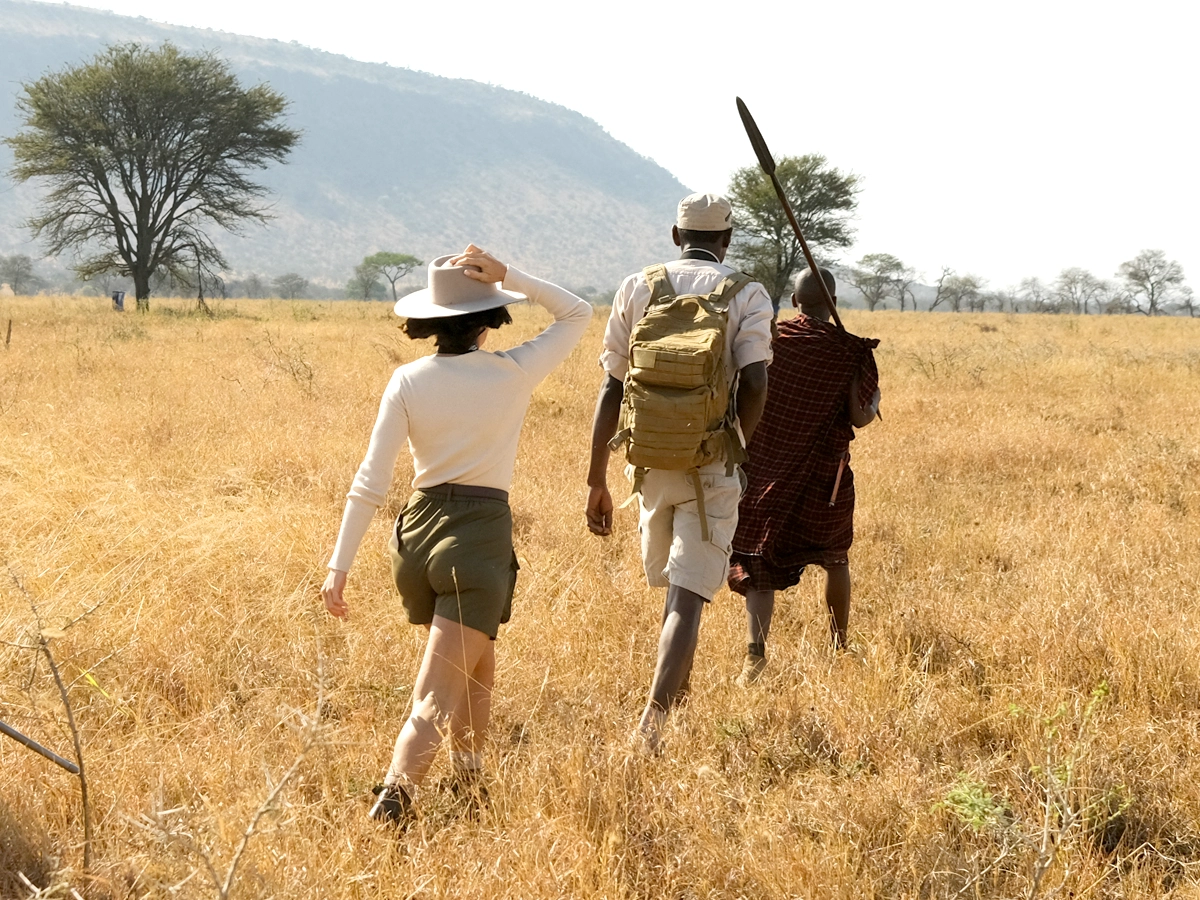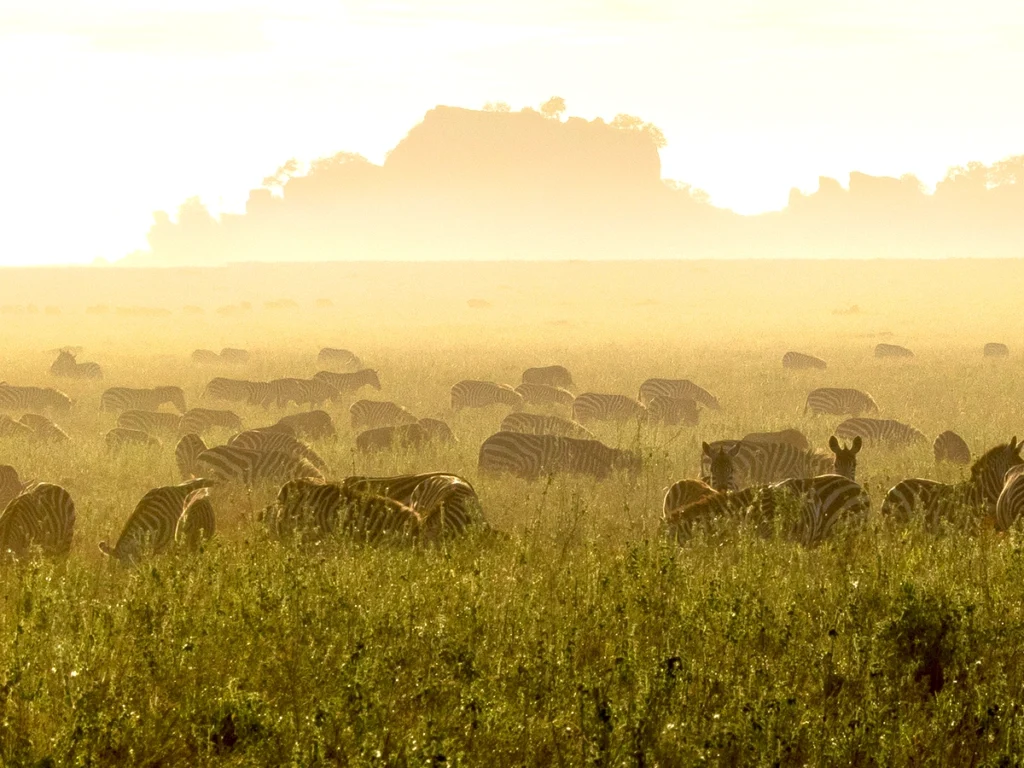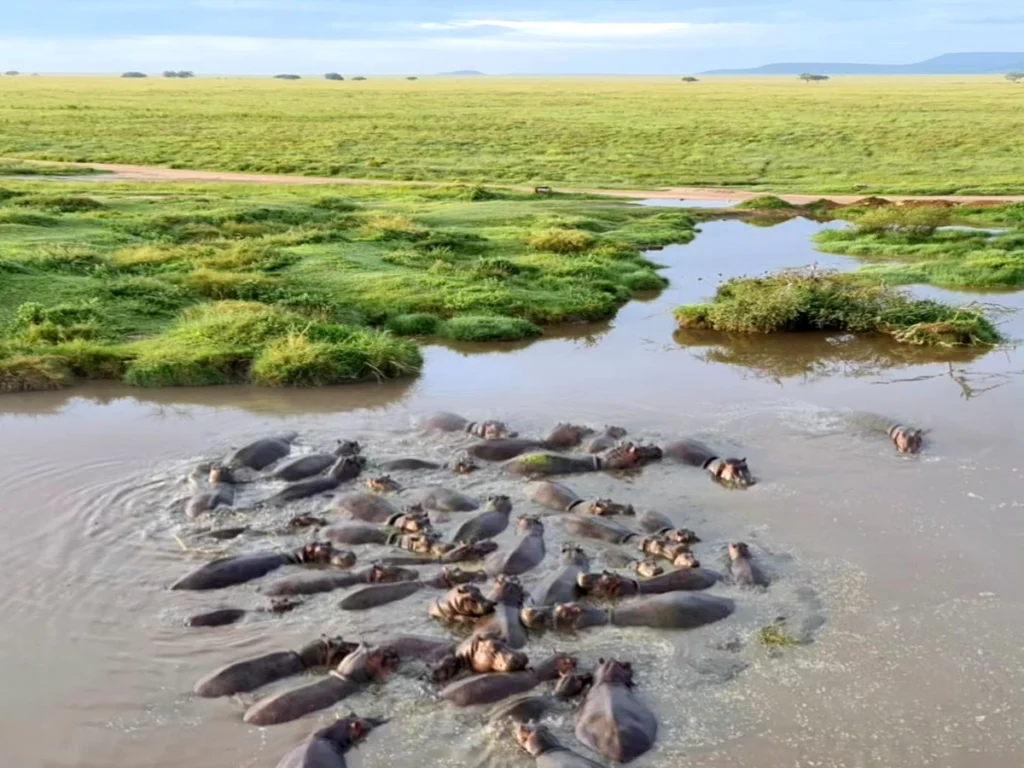
When you think of the Serengeti, most people picture vast golden plains, lions on the prowl, and elephants moving slowly across the savannah. But close your eyes, and there’s another side to the wild—one you don’t see but feel through sound.
Each part of the day in the Serengeti has its rhythm. From the moment the sun rises until long after it sets, the air carries the voices of birds, grazers, and predators. Every sound is a signal, a message, or a moment in the daily life of the wild.
Let’s follow a typical day through the sounds you might hear while staying at One Nature Lodges.

As the first light touches the grasslands, the birds begin to sing. The doves and francolins often break the silence—first, their soft coos and rhythmic clucks fill the cool morning air.
Weaver birds chatter as they hop between trees. Sometimes, the distant whoop of a hyena still lingers from the night. You might also hear baboons barking from the trees, often a sign that a predator passed nearby during the night.
This is the most active time for birds. It’s their window to feed, sing, and connect before the day’s heat settles in. If you listen closely, you can tell the difference between a simple song and a warning call.

As the sun rises and temperatures climb, most animals seek shade and rest. The soundscape changes completely, and the Serengeti becomes still and calm. But even in this silence, there is life.
You might hear an elephant’s deep, low rumble communicating with its herd. If you’re near a water source, you’ll catch the occasional grunt or snort from hippos cooling off in the shallows. Zebra brays sometimes break through the quiet, helping members of a group stay connected.
Insects buzz through the grasses, and now and then, a breeze rustles the dry leaves. It’s subtle, but it’s alive.
As the sun begins to lower, life stirs again. The animals start to move. Wildebeest call out to one another with deep, nasal groans. Birds return to the air, and you might hear a hornbill’s screech or a go-away bird’s sharp cry. If you’re lucky, the unmistakable call of a fish eagle echoes across the landscape.
You might even hear the first whoop of a hyena as it wakes and begins to roam. Lions are also beginning to stir. Their deep, low grunts are a quiet signal between pride members as they prepare for the evening.
As day turns to night, the entire landscape transforms. This is when lions begin to roar. The sound is powerful and profound, reaching across the plains. A male might mark his territory or call out to the rest of the pride. The sound can travel up to eight kilometers in the cool evening air.
Hyenas become more vocal, too. Their whoops and cackles rise in pitch as they communicate, often while scavenging or regrouping. It’s one of the African night’s most distinct and eerie sounds.
Owls begin their quiet calls, and nightjars flutter and chirp low to the ground. Frogs and insects create a steady rhythm, building a whole nighttime symphony. Even the silence between sounds holds meaning.

You don’t need to venture far to experience this at One Nature Lodges. You’ll wake to gentle birdcalls, enjoy your sundowner while listening to the sounds of distant wildlife, and fall asleep as the Serengeti sings softly outside your tent.
Every sound tells a story. And when you stay here, those stories surround you, creating a memory that lasts long after the trip ends.